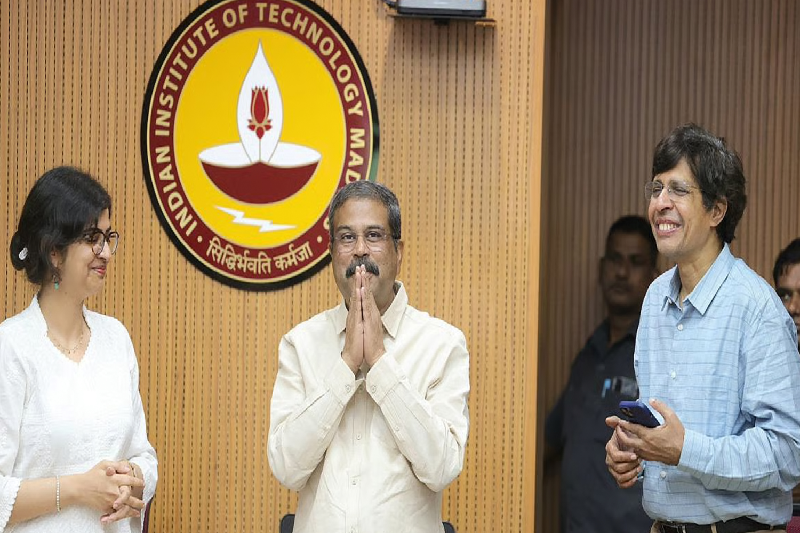
India to Introduce Skill-Based Learning in Classes 11 and 12: A Shift Towards Competency-Focused Education
Government Moves to Transform Senior Secondary Education
The Union Government has announced plans to integrate skill-based learning into the curriculum of Classes 11 and 12, marking a significant shift in India’s education system. Union Education Minister Dharmendra Pradhan revealed this initiative during the Dakshinapatha Summit 2025 at the Indian Institute of Technology, Madras, emphasizing the need for a paradigm shift in learning methodology. This reform aligns with the National Education Policy (NEP) 2020, which advocates for competency-focused education rather than the traditional certificate- and degree-centric system.
Pradhan highlighted that while India’s earlier education model prioritized academic credentials, the evolving job market demands practically competent students with relevant skills. “Prime Minister Narendra Modi rightly said we need degrees and certification, but we also need to make the students competent,” Pradhan noted, underlining the importance of producing graduates ready for real-world challenges.
Skill-Based Learning: From Optional to Core
Historically, skill-based education in Indian schools was optional, often offered selectively or as supplementary courses. The government plans to make it a formal, integral part of the curriculum, starting with Classes 11 and 12. Students will no longer treat skill development as an elective. Still, they will engage with it as a core subject, ensuring consistent exposure to practical competencies, vocational skills, and life-ready capabilities.
The Ministry also explores the earlier introduction of skill-based learning from Class 6 onwards, ensuring a progressive learning model where students gradually acquire competencies alongside traditional academic knowledge. This step reflects a systemic approach to education, moving beyond rote learning to developing critical thinking, problem-solving, communication, and employable skills at an age-appropriate level.
Aligning with the National Education Policy 2020
The proposed reform is rooted in the NEP 2020, which stresses holistic and multidisciplinary learning. One of the primary recommendations of NEP 2020 is the formal inclusion of skill-based education to equip students for both higher education and the professional world. The NEP emphasizes that knowledge alone is insufficient; students must acquire practical skills, creativity, and adaptability to thrive in a rapidly changing global economy.
By incorporating skill-based learning in senior secondary education, the government aims to bridge the gap between academic knowledge and employability, ensuring students are exam-ready and career-ready. This model encourages students to apply theoretical concepts in real-world contexts, fostering innovation, collaboration, and self-reliance.
Focus Areas of Skill-Based Education
While the specific details of the curriculum are still under development, skill-based learning will likely focus on the following areas:
- Vocational skills: Preparing students for industry-specific roles and entrepreneurial ventures
- Digital literacy and coding: Essential for the technology-driven economy
- Problem-solving and critical thinking: Encouraging analytical and creative approaches to challenges
- Communication and collaboration: Enhancing interpersonal and teamwork skills
- Life skills and ethics: Developing responsible, independent, and socially aware individuals
These competencies complement traditional subjects such as mathematics, science, and languages, ensuring students develop the academic knowledge and practical abilities required for higher education and professional life.
Benefits for Students
The integration of skill-based learning in Classes 11 and 12 offers multiple benefits:
- Enhanced Employability: Students graduate with practical skills that increase their attractiveness to employers.
- Smooth Transition to Higher Education: Competency-focused learning better prepares students for university-level challenges.
- Holistic Development: Encouraging creativity, problem-solving, and critical thinking alongside academics.
- Future-Ready Workforce: Prepares students for emerging job markets, entrepreneurship, and global opportunities.
By making skill education mandatory, the government ensures that all students, regardless of socio-economic background, have access to competencies that broaden career choices and support lifelong learning.
Teacher Training and Curriculum Development
Teacher preparedness will be critical for successful implementation. The Ministry of Education is expected to train educators in new pedagogical methods tailored for skill-based instruction. Teachers will receive guidance on integrating skill development into classroom learning and designing practical projects, assessments, and experiential learning activities that foster competency.
Curriculum development will also consider industry relevance, ensuring students learn skills aligned with current and future job market requirements. Collaboration with industry experts, vocational trainers, and educational institutions will help maintain the practical applicability of skills taught.
Long-Term Vision and Impact
This initiative reflects the government’s long-term vision of a modern, holistic, inclusive education system. By integrating skill-based learning from secondary to senior secondary levels, India aims to:
- Reduce skill gaps between education and employment
- Produce graduates who are workforce-ready from day one.
- Encourage innovation, entrepreneurship, and creativity.y
- Make education more engaging, relevant, and future-oriented
The reform also positions India as a global leader in education innovation, preparing its youth to compete internationally while contributing effectively to the national economy.
Conclusion
The government’s plan to introduce skill-based learning in Classes 11 and 12 is a landmark step in transforming India’s education system. By shifting focus from certificates to competencies, students will gain practical skills, employability, and holistic development alongside academic knowledge. With careful implementation, teacher training, and curriculum design, this reform promises to equip the next generation of students with the tools needed for success in higher education, professional careers, and global opportunities.
As skill-based learning becomes an integral part of senior secondary education, India takes a significant stride toward creating a future-ready, competent, and innovative workforce, fulfilling the vision of NEP 2020 and shaping a new era of education.



